Monica Haller. The Veterans Book Project
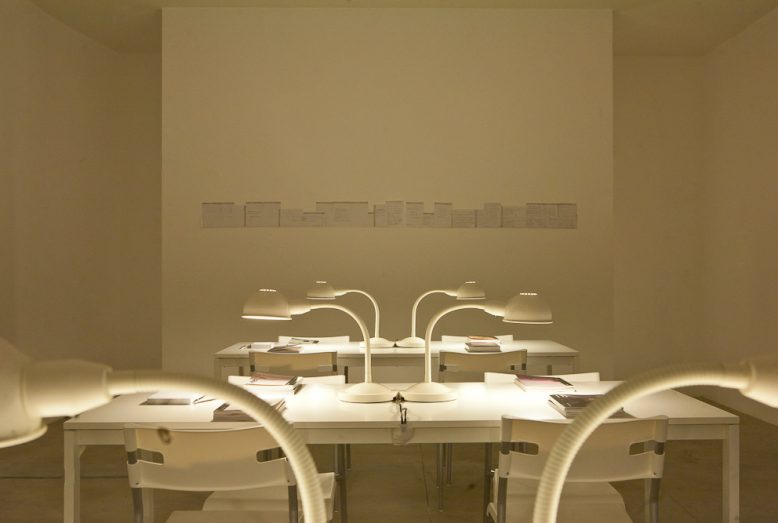 Veteran Book Project by Monica Haller and curated by Stefano Chiodi at Nomas Foundation, Rome, Italy in December, 2011.
Veteran Book Project by Monica Haller and curated by Stefano Chiodi at Nomas Foundation, Rome, Italy in December, 2011.
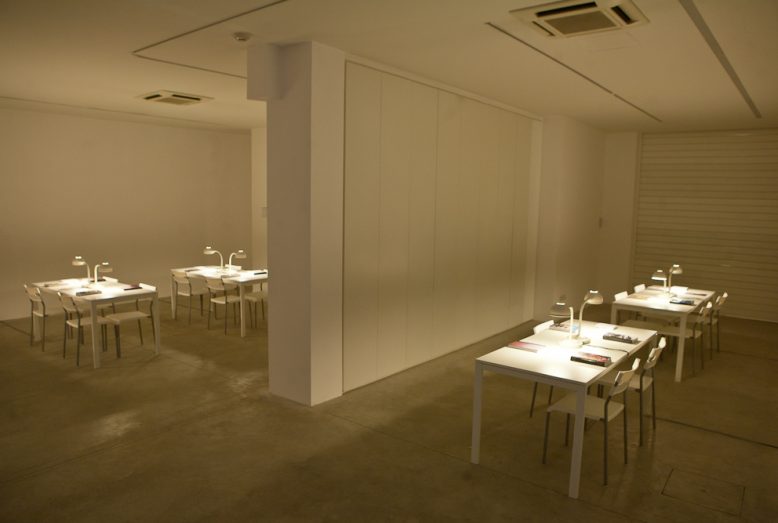 Veteran Book Project by Monica Haller and curated by Stefano Chiodi at Nomas Foundation, Rome, Italy in December, 2011.
Veteran Book Project by Monica Haller and curated by Stefano Chiodi at Nomas Foundation, Rome, Italy in December, 2011.
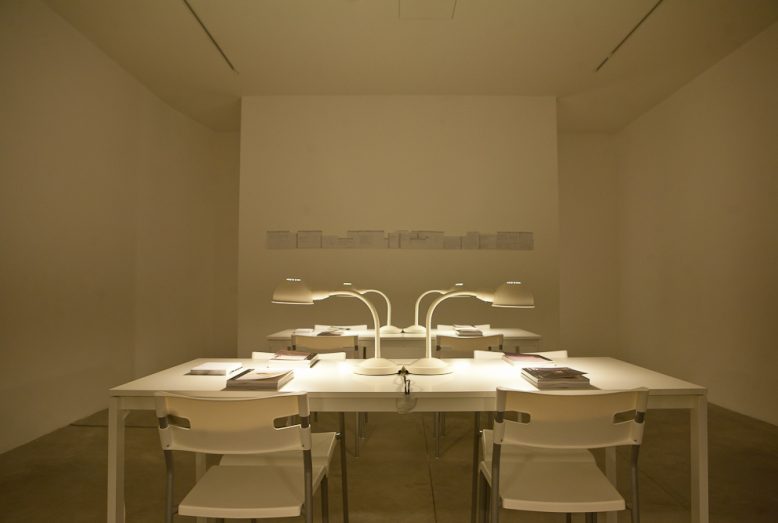 Veteran Book Project by Monica Haller and curated by Stefano Chiodi at Nomas Foundation, Rome, Italy in December, 2011.
Veteran Book Project by Monica Haller and curated by Stefano Chiodi at Nomas Foundation, Rome, Italy in December, 2011.
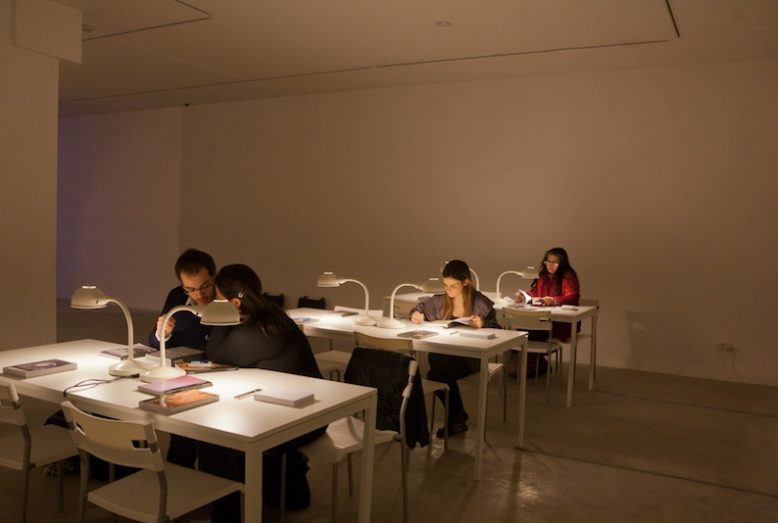 Monica Haller. The Veterans Book Project. Installation view, Nomas Foundation, Rome. Courtesy of the artist and Nomas Foundation, Rome. Ph. Christina Clusian
Monica Haller. The Veterans Book Project. Installation view, Nomas Foundation, Rome. Courtesy of the artist and Nomas Foundation, Rome. Ph. Christina Clusian
 Monica Haller. The Veterans Book Project. Installation view, Nomas Foundation, Rome. Courtesy of the artist and Nomas Foundation, Rome. Ph. Christina Clusian
Monica Haller. The Veterans Book Project. Installation view, Nomas Foundation, Rome. Courtesy of the artist and Nomas Foundation, Rome. Ph. Christina Clusian
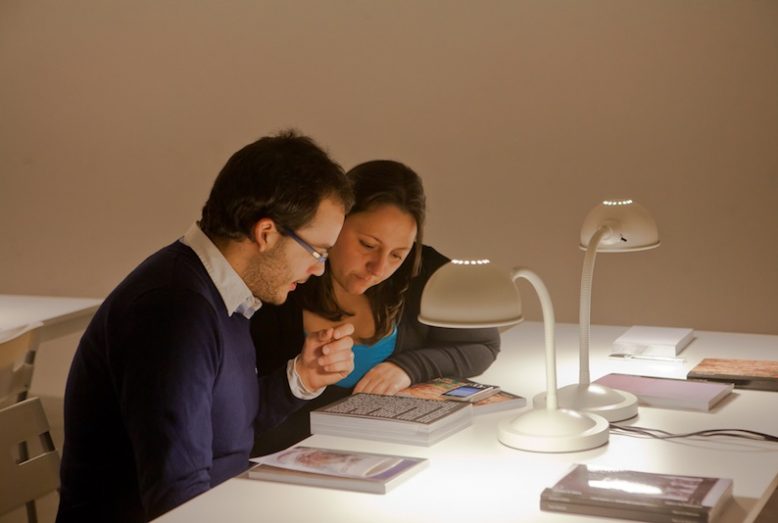 Monica Haller. The Veterans Book Project. Installation view, Nomas Foundation, Rome. Courtesy of the artist and Nomas Foundation, Rome. Ph. Christina Clusian
Monica Haller. The Veterans Book Project. Installation view, Nomas Foundation, Rome. Courtesy of the artist and Nomas Foundation, Rome. Ph. Christina Clusian
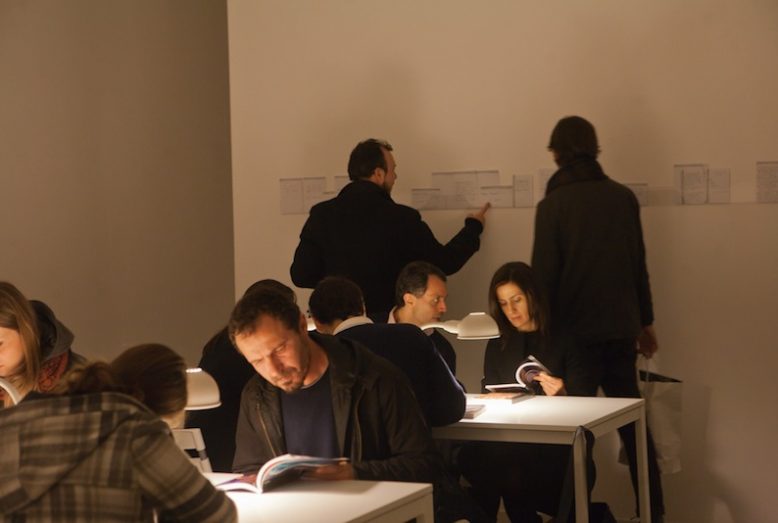 Monica Haller. The Veterans Book Project. Installation view, Nomas Foundation, Rome. Courtesy of the artist and Nomas Foundation, Rome. Ph. Christina Clusian
Monica Haller. The Veterans Book Project. Installation view, Nomas Foundation, Rome. Courtesy of the artist and Nomas Foundation, Rome. Ph. Christina Clusian
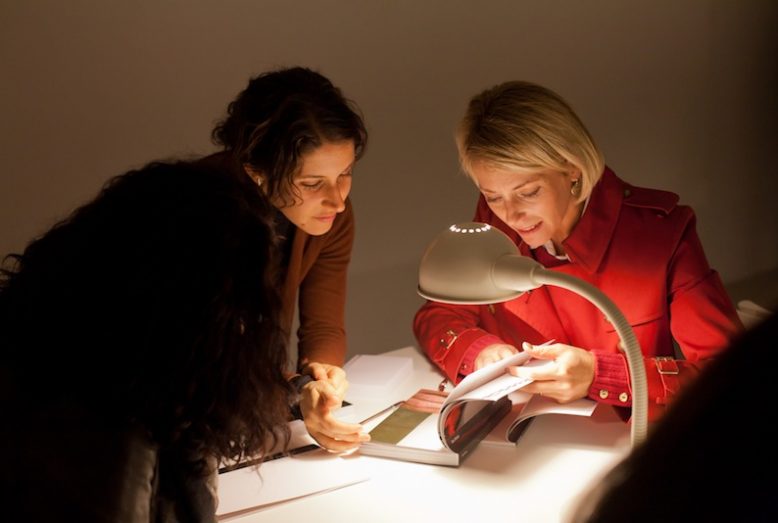 Monica Haller. The Veterans Book Project. Installation view, Nomas Foundation, Rome. Courtesy of the artist and Nomas Foundation, Rome. Ph. Christina Clusian
Monica Haller. The Veterans Book Project. Installation view, Nomas Foundation, Rome. Courtesy of the artist and Nomas Foundation, Rome. Ph. Christina Clusian
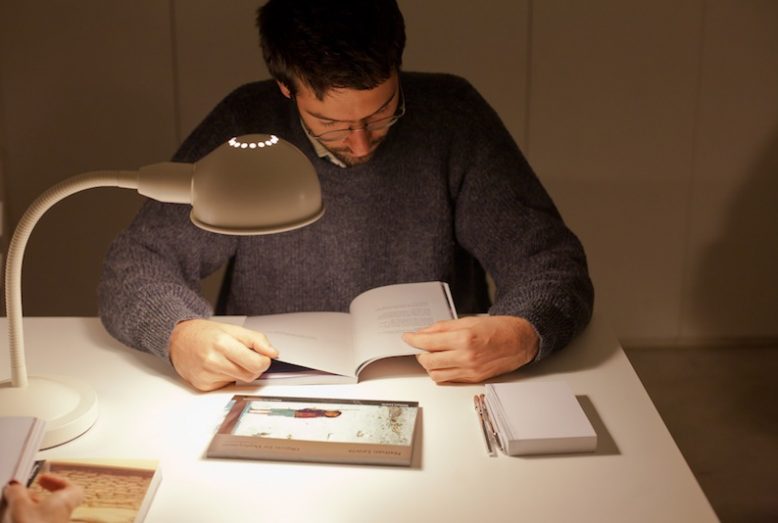 Monica Haller. The Veterans Book Project. Installation view, Nomas Foundation, Rome. Courtesy of the artist and Nomas Foundation, Rome. Ph. Christina Clusian
Monica Haller. The Veterans Book Project. Installation view, Nomas Foundation, Rome. Courtesy of the artist and Nomas Foundation, Rome. Ph. Christina Clusian
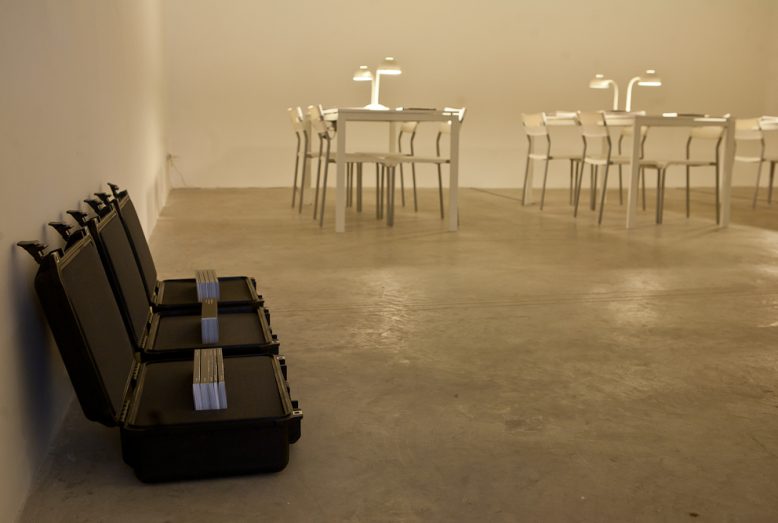 Veteran Book Project by Monica Haller and curated by Stefano Chiodi at Nomas Foundation, Rome, Italy in December, 2011.
Veteran Book Project by Monica Haller and curated by Stefano Chiodi at Nomas Foundation, Rome, Italy in December, 2011.
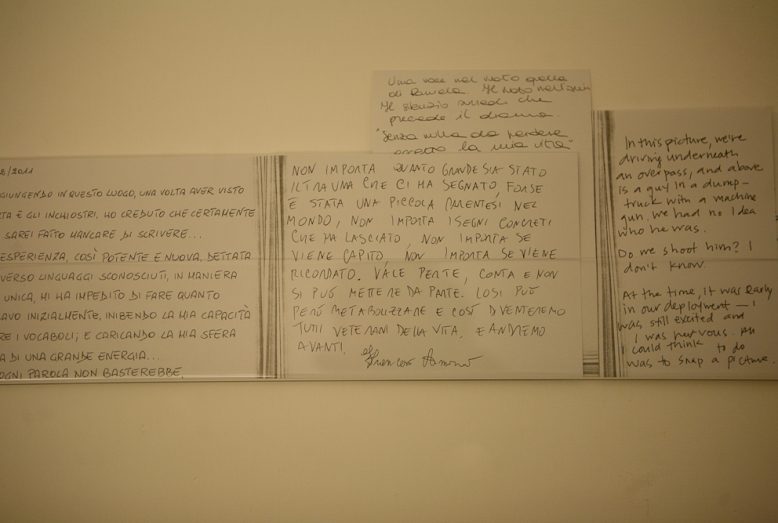 Veteran Book Project by Monica Haller and curated by Stefano Chiodi at Nomas Foundation, Rome, Italy in December, 2011.
Veteran Book Project by Monica Haller and curated by Stefano Chiodi at Nomas Foundation, Rome, Italy in December, 2011.
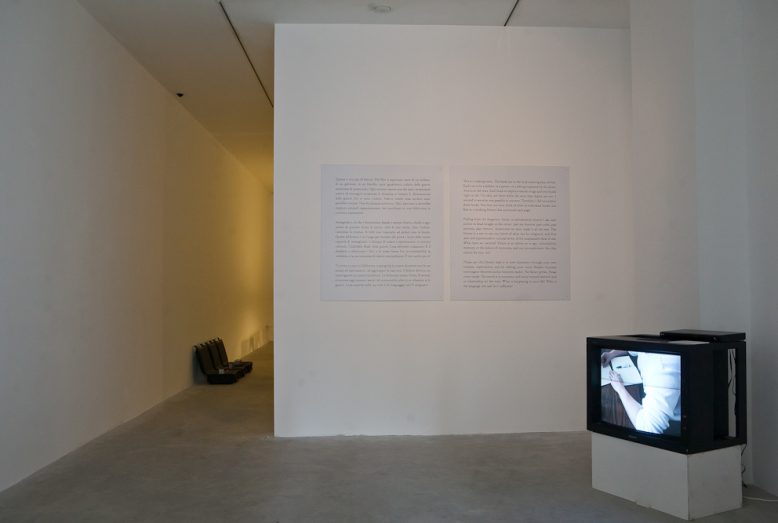 Veteran Book Project by Monica Haller and curated by Stefano Chiodi at Nomas Foundation, Rome, Italy in December, 2011.
Veteran Book Project by Monica Haller and curated by Stefano Chiodi at Nomas Foundation, Rome, Italy in December, 2011.
Curated by Stefano Chiodi
December 7th, 2011 - February 23rd, 2012
Opening December 6th, 2011 from 6.30pm
Nomas Foundation, viale Somalia 33, Rome
The Veterans Book Project is a growing library of books that Monica Haller is building with veterans, survivors and their image archives of the current American-led wars. Many books are by soldiers, another is by a mother, another by a brother whose sibling died in combat, and another by an Iraqi woman who lost her legs when a US errant missile landed on her bed. They are the authors, the experts.
Pulling from the forgotten, banal, or never actually incorporated into memory, Haller asks each collaborator to bi-pass rhetoric and head to the center. A camera-phone photo, an email, a hard drive, a journal entry, amnesia: the resources are limitless. The VBP library grows and adapts with the legacies of these wars.
Haller does not author the books. She makes the project’s components and structure for the authors to fill in. She curates the workshop space for their endeavors together, which include designing bookmaking software as a stable site for this often-illusive material. Once inside, she is a listener, an editor, a designer, a witness. Haller returns to the book format because of its insistent materiality, its legacy as a vehicle of history and memory, its stability and its mobility. Eight book-making workshops in one year yielded 30 books and thousands of copies in circulation. During a time of ongoing, endless war, Haller is building a community of authors and readers to continuously exchange knowledge of war by writing, reading and discussing this these books.
The entire library will be installed at Nomas Foundation in a reading room, allowing the audience to immerse themselves in a convulsive, fragmentary universe of untreatable memories and permanent afterimages. The books become testing devices for discovering the limits of what can be really imagined, and thus seen and experienced in cultural terms, of the unspeakable, traumatic Real of the war. War that Haller sees as the point where all discursive or visual strategies falter and collapse, where representation is constantly challenged by the elusive, perverse nature of the facts and hence as the counterpart of the media-driven imaginary world where we all reside.
By challenging our capacity for recalling the past, forcing us to focus on the traumatic abyss that constantly threatens our language and life, Monica Haller aims to re-activate the critical potential of art as an act of resistance, a process by which each individual, skilled or not, artist or not, connects himself to a broader context and community, and therefore restores his or her capacity to create alternate histories, different representations and possibly a new, personal language - one which makes room for trauma, and ultimately affirms itself as a powerful transformation factor for human existence.
To this end, each book is made to be a beginning. Students and educators will visit Nomas to activate the exhibition, leading it in new directions through their own analysis, explorations and by adding their voices. Classes research, make presentations, video projects and produce new, local books. Like prongs radiating outward from the library, their voices become part its murmur. The sound grows.
On December 13th at 6.00pm, in collaboration with MACRO, all are invited to a panel discussion where Andrea Cortellessa, essayist and literary critic, Arturo Mazzarella, historian and literary theorist, Tommaso Pincio, novelist and essayist, will discuss a variety of topics raised by The Veterans Book Project.
Monica Haller is a visual artist born in 1980 in Minneapolis. Using design, video, photography and writing her art practice is rooted in social justice concerns and attempts to mobilize information by amplifying the materials and technologies that her collaborators turn to in their own lives. Trauma, memory and communication are some of the themes in her work. She has a BA in Peace and Conflict Studies from the College of St. Benedict and an MFA in Visual Studies from the Minneapolis College of Art and Design. Her work has been exhibited at venues ranging from the Festival Les Rencontres d’Arles, in Arles, France, the Walker Art Center, Minneapolis, Rhode Island School of Design (RISD), Providence, to the 01SJ Biennial, Build Your Own World in San Jose. She has received numerous awards for her work, including a Guggenheim Fellowship and support from the National Endowments for the Arts.
Stefano Chiodi (Rome, 1963) is an art historian, critic and curator. He has written and edited several essays and books, including Ai Weiwei, Il Blog (Italian edition, 2011) Spazio (with D. Dardi, 2010); Marcel Duchamp. Critica, biografia, mito (2009); Le funzioni del museo (2009); La bellezza difficile (2008); Una sensibile differenza (2006); annisettanta (with M. Belpoliti e G. Canova, 2007); Espresso (2000). He has curated exhibitions including ZimmerFrei, Bologna 2011; Giulia Piscitelli, Rome 2011; Olaf Nicolai, Ferrara 2008; vedovamazzei, Naples 2006; Diego Perrone, New Delhi 2005, as well as symposia (most recently, Harald Szeemann in context, Venice 2011) and projects for the Italian public radio RAI. He writes regularly for «il manifesto» and «alfabeta2». He is founding editor of www.doppiozero.com. He teaches Contemporary Art at Università Roma Tre, Rome.